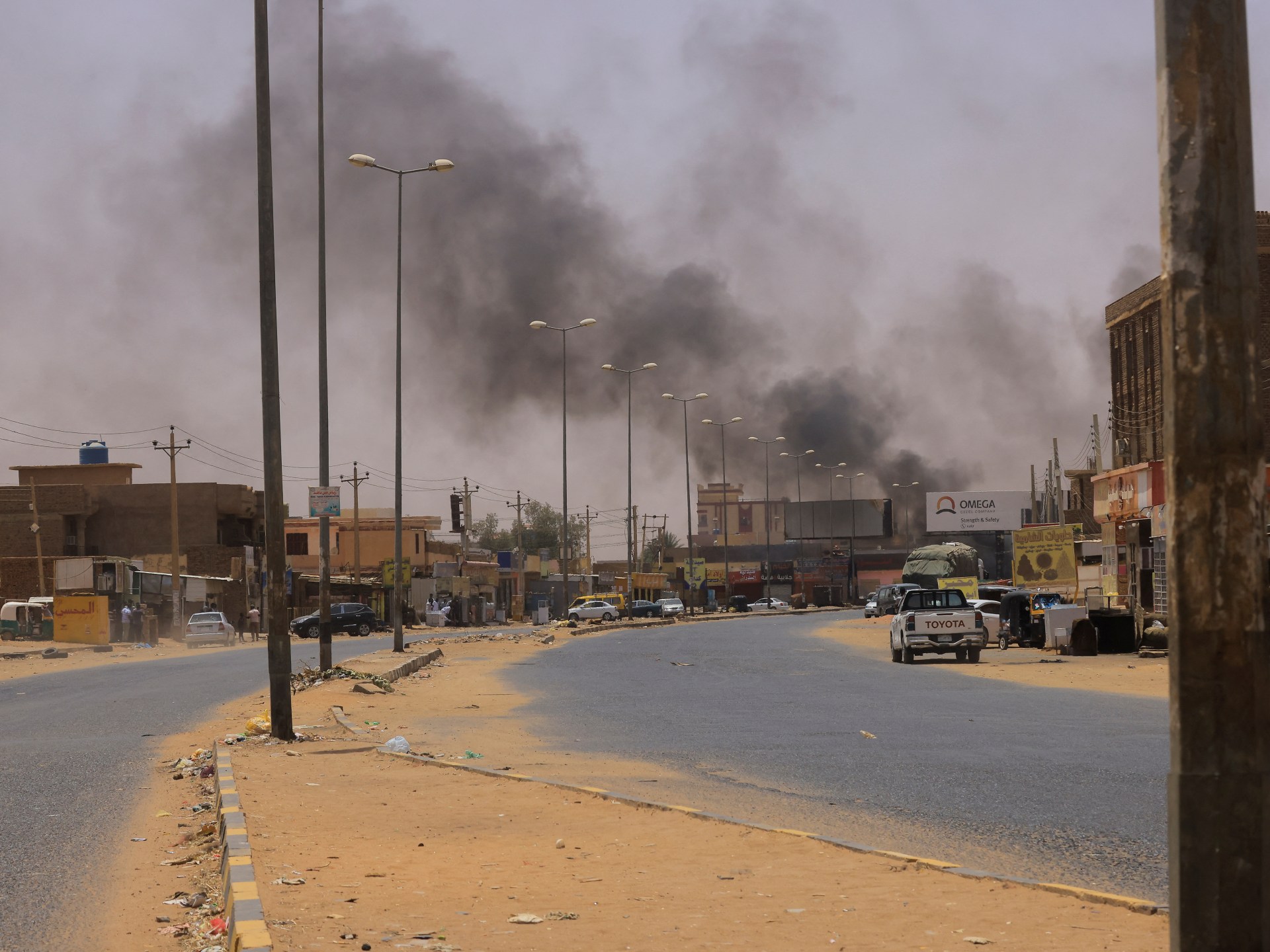Clashes between the Sudanese army and the Rapid Support Forces (RSF) have escalated across the capital Khartoum, amid diplomatic contacts with Riyadh and Cairo to de-escalate and reach a new truce, while Washington confirmed working with Saudi Arabia to end the conflict, including negotiating a declaration of commitment to protect civilians.
Sudan's sovereign council media said on Tuesday that council president Abdel Fattah al-Burhan had received a phone call from Saudi Foreign Minister Prince Faisal bin Farhan.
During the call, Al-Burhan stressed his confidence in the Jeddah platform, which leads to sustainable peace in Sudan, and stressed the need for the Rapid Support Forces to commit to leaving hospitals, service facilities and citizens' homes, evacuating the wounded, and opening paths for providing humanitarian aid so that the Jeddah platform achieves its success.
In Cairo, Dafallah Haj Ali, Special Envoy of the Chairman of Sudan's Transitional Sovereignty Council, discussed with Egyptian Deputy Foreign Minister Hamdi Sanad Loza aspects of bilateral cooperation between the two countries.
A statement issued by the Sudanese Foreign Ministry media said that the Sudanese and Egyptian parties stressed the strengthening of continuity and joint strategic cooperation in these circumstances that Sudan is going through, and to help it overcome the crisis as soon as possible, in order to restore security and stability in the country.
The meeting also discussed the difficulties facing Sudanese citizens crossing into Egypt fleeing the war, and the Egyptian arrangements at the crossings to facilitate the movement of transients.
The Egyptian official said that his country is working to overcome all that the Sudanese face at the crossings, stressing Egypt's support for Sudan in everything that concerns it.
For his part, the Sudanese Special Envoy expressed his thanks for the Egyptian role led by President Abdel Fattah Al-Sisi in supporting Sudan.
Khartoum clashes
This comes as clashes took place with heavy weapons in central Khartoum on Tuesday between the Sudanese army and the Rapid Support Forces after simultaneous confrontations in the capital's three cities (Khartoum, Khartoum North and Omdurman), at a time when residents spoke of widespread looting of property in Khartoum and Darfur.
Al Jazeera correspondent reported renewed artillery shelling, accompanied by warplanes flying over Khartoum, and the sounds of heavy weapons were heard in the city center.
The correspondent also reported hearing strong and successive explosions in the south of Omdurman, west of the Sudanese capital.
Fighting between Sudan's army and the Rapid Support Forces (RSF) has escalated in the past two days to include the capital's three cities after the end of the latest truce between the two sides of the conflict.
Al Jazeera correspondent said that clashes with heavy weapons took place in Al-Ghaba Street, the industrial zone and the new Hilla west of Khartoum, and the areas of Omdurman witnessed clashes, and successive explosions were heard south of the city and in the Bahri area north of the capital.
Military sources in the Sudanese army told Al Jazeera that army forces took control of Arbaeen Street in Omdurman in the capital Khartoum.
The RSF announced that it had taken control of a military garrison in the western city of Kutum, which the army denied.
In West Darfur state, medical sources said that the security events in the state left more than two thousand wounded, most of them women and children, and the sources announced the death of all dialysis patients in the city of El Geneina,
the state capital.
A medical report indicated that the city was running out of medical supplies and that aid could not be delivered due to the deployment of snipers.
Since April 15, Khartoum and other cities have been witnessing clashes between the army led by Abdel Fattah al-Burhan and the Rapid Support Forces led by Mohamed Hamdan Daglo (Hemedti), leaving hundreds dead and thousands injured among civilians, in addition to a new wave of displacement and asylum in one of the world's poorest countries.

